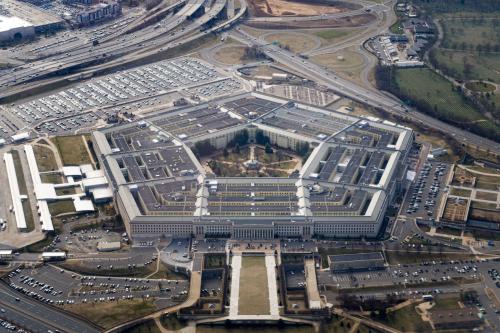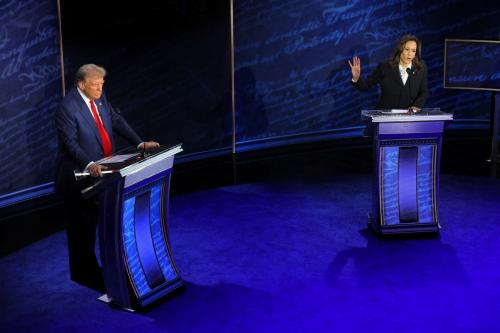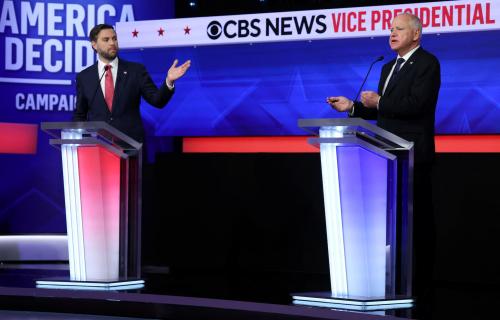I was watching NFL football when the news appeared of a rifle poking through the bushes at the former president’s Florida golf course not far away from where Trump was playing golf. The Secret Service’s quick action averted a tragedy, and a suspect soon was detained.
But it didn’t take long before I saw posts on my social media sites saying, “are they just missing on purpose to stir up drama?” and alleging that Trump was “trying to get sympathy.” The shocking inference that the incident was staged reminded me of similar responses from liberal friends following the more serious Pennsylvania attempt where a shooter came within half an inch of landing a bullet in Trump’s head. The instant response on the part of some of those people was that the GOP nominee had engineered the shooting in order to increase support for his presidential bid.
Conservatives at that time also had their own conspiracy theories. They wondered out loud whether the Trump shooting was an inside job on the part of the Biden-led Secret Service to harm the leading opponent of the president’s then-reelection bid. The idea was that Biden was not doing well in the polls and law enforcement supporters intentionally let the suspect close enough to Trump in order to fire off several rounds in an effort to end that political problem.
Dating back to the John F. Kennedy shooting and beyond, assassination long has been a fertile ground for misinformation, disinformation, propaganda, and wild conspiracy theories. Decades after the Kennedy murder, there remain wide-ranging theories that Lee Harvey Oswald did not act alone, Fidel Castro was behind the assassination, the mob ordered it out of revenge for the administration’s tough actions against organized crime, and Lyndon Johnson somehow was behind the effort in order to achieve his lifelong dream of becoming president.
The persistence of false narratives around many assassination attempts shows the peculiar nature of our current political times. With its toxic combination of intense polarization, radicalization, social media frenzies, and easy dissemination of debunked theories with very little evidence, the contemporary period shows why misinformation and disinformation flourish in so many different areas and why false stories represent such a threat to democratic governance. When people have their own facts and there are wildly varying interpretations of social, economic, and political developments, it is difficult to make sense of new happenings and agree on what happened.
Without those basic ingredients, it is hard for leaders to bring people together and for individuals to see one another as sharing in a common enterprise. Instead, it is easy to divide people, pit groups against one another, and encourage people to seek scapegoats for things they don’t like. We see that clearly in the immigration area because as opposed to making meaningful efforts to address border security and long-term migration patterns, leaders blame the other side, claim immigrants are behind high crime rates, that they steal people’s cats and dogs to eat them and argue opponents are not to be trusted with the future of America.
Assassination attempts also generate wild and unsubstantiated claims because by their very nature, they are violent, shocking, and impactful events. America has prided itself on its long history of stable, democratic rules and peaceful transitions of power. Things such as the Civil War are seen as an aberration in our political history.
But we all know that beneath the surface of a supposedly peaceful country are mass shootings, violent episodes, and occasional efforts to alter the course of civic affairs through violence. Assassination is the ultimate disruption that does alter the course of history and makes people suspicious of one another. There is survey evidence that in addition to rising political mistrust in the United States, Americans no longer trust one another. Questions asking people whether they trust their neighbors show our declining confidence in one another. Adversaries know this and are quick to spread false narratives designed to intensify public passions and divide people from one another. If you can’t trust your neighbors, you can’t trust anyone.
In our new Brookings book, “Lies That Kill: A Citizen’s Guide to Disinformation,” Elaine Kamarck and I argue that even in a crazy time period with mass shootings and targeted violence, we are not doomed to live in a fact-free world where lies prevail and distort our civic discourse. We can start by encouraging people to bring common sense to their interpretations of political events. For example, would Donald Trump seriously hire a 20-year-old guy who was not a very good shooter to put a bullet within a whisker of his head? Would the Secret Service deliberately allow a killer close access to a presidential candidate in order to remove him as a political competitor? No reasonable person should believe either one of those things.
People need to learn how to evaluate digital sources, spot the telltale signs of foreign influence operations, distinguish partisan from nonpartisan material, and not fall for crazy theories. Unless we do those things, America will continue to be bedeviled by blatant lies and false narratives that turn people against one another. We will lurch from one event to another and be fearful that the other side will use the most nefarious techniques to impose its will on others. We need to tame the torrent of misinformation and disinformation to address our country’s many problems.







Commentary
Why is assassination misinformation so popular?
September 16, 2024